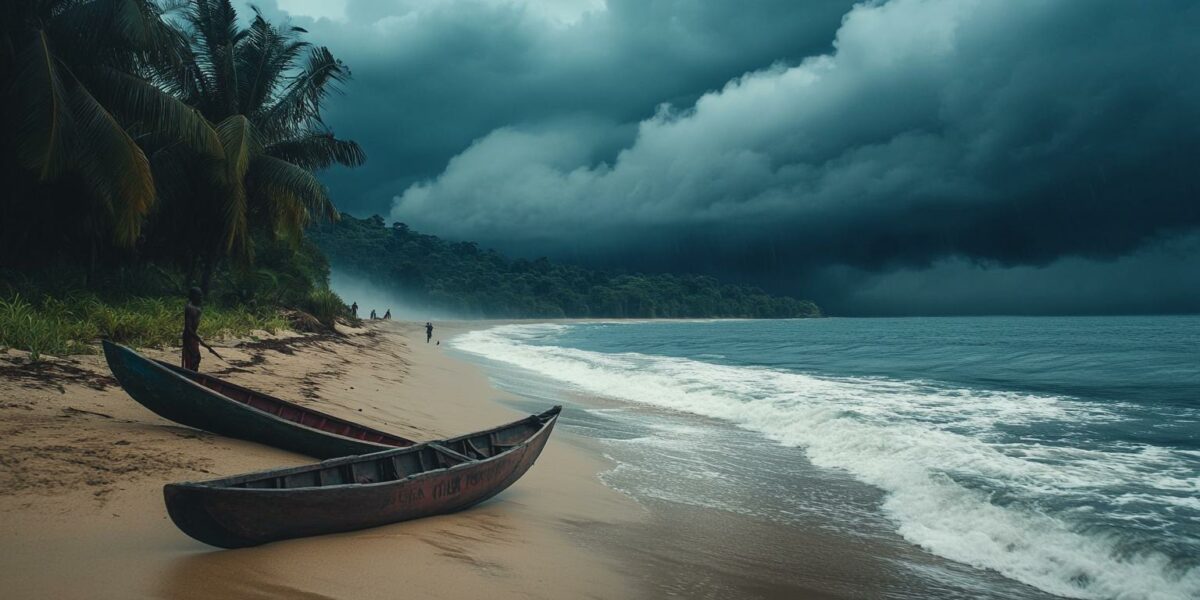Unveiling the Struggles: Coastal Tribes Confront Climate Change
Coastal tribes in the Pacific Northwest are grappling with the harsh realities of climate change. Rising sea levels and intensified storms are just the beginning of their challenges. A recent report, spearheaded by the University of Washington’s Climate Impacts Group, delves into these pressing issues, revealing both obstacles and triumphs.
The report highlights the significant difficulties these tribes face in securing the necessary funding. Navigating the complex web of bureaucratic paperwork adds to their woes. Despite these hurdles, there are noteworthy instances of success that shine through their resilience and ingenuity.
Meade Krosby, a senior scientist at the Climate Impacts Group, and Amelia Marchand, a senior tribal climate resilience liaison, co-led this crucial project. Their collaborative effort brings to light the voices and experiences of 13 coastal tribes, providing a comprehensive overview of the current situation.
The findings are not just a collection of data; they represent the lived experiences of those on the front lines of climate change. It underscores the urgent need for targeted support and effective solutions to mitigate these impacts and secure a sustainable future for these communities.
Success Stories Amidst Adversity
Amid the challenges, there are stories of success that inspire hope. Some tribes have developed innovative strategies to combat the effects of climate change. These initiatives include the construction of elevated structures to protect against flooding and the restoration of natural barriers to reduce storm impact.
One significant achievement is the collaboration between various tribes. By working together, they have pooled resources and knowledge, resulting in more robust and effective solutions. This collective effort exemplifies the power of unity in the face of adversity.
Key highlights from the report include:
- The implementation of traditional ecological knowledge to enhance climate resilience.
- Successful grant applications that have funded critical infrastructure projects.
- Community-led educational programs that raise awareness and foster preparedness.
These success stories are a testament to the tribes’ determination and resourcefulness. They serve as valuable examples for other communities facing similar challenges.
Barriers to Progress: Funding and Bureaucracy
Securing adequate funding remains a significant barrier for many coastal tribes. The report details the extensive challenges they encounter in this area. From complex application processes to stringent requirements, the path to obtaining financial support is fraught with obstacles.
Additionally, the bureaucratic burden is a recurring theme. The time and resources required to navigate these systems divert attention from the pressing issues at hand. This red tape often delays crucial projects and hampers timely responses to environmental threats.
Despite these setbacks, there is a growing recognition of the need to streamline these processes. Efforts are underway to simplify funding applications and reduce bureaucratic hurdles, aiming to provide more accessible and timely support for tribal communities.
By addressing these barriers, there is hope that more tribes can implement the necessary measures to protect their lands and communities from the escalating impacts of climate change.
Looking Forward: Building Resilience
The report underscores the importance of building resilience to withstand future climate impacts. It calls for a collaborative approach, involving tribal, federal, and local governments, to develop comprehensive strategies that address both immediate and long-term needs.
One promising avenue is the integration of traditional ecological knowledge with modern science. This holistic approach leverages centuries of indigenous wisdom to create sustainable and effective solutions. It emphasizes the value of indigenous perspectives in crafting climate resilience strategies.
Furthermore, community engagement plays a crucial role. Empowering tribal members through education and participation ensures that the solutions are culturally appropriate and widely supported. This inclusive process strengthens the community’s capacity to adapt and thrive amidst changing conditions.
Ultimately, the path forward lies in recognizing and respecting the inherent rights and knowledge of indigenous communities. By fostering partnerships and supporting self-determined initiatives, we can build a resilient future that honors both the past and the present.



liam7
It’s frustrating to see bureaucracy getting in the way of progress. Let’s hope for simplified processes soon! 😊
robert
Such an important topic. Thanks for bringing attention to the challenges and triumphs of these tribes.
Violet
I’m curious, how can local communities get involved in supporting these efforts?
abigailwhisper0
😮 It’s amazing to see how traditional knowledge is being used to combat climate change!
julian_ethereal
Great read! Are there any success stories from other regions that we can learn from?
caroline7
This is both heartbreaking and inspiring. Kudos to the tribes for their innovative solutions.
daniel1
Why is it so hard for tribes to get the funding they need? Bureaucracy sucks!
harrison
Does the report mention any specific funding sources that have been helpful?
olive4
Thank you for shedding light on these important issues. It’s inspiring to see their resilience.
sofia
Wow, this report is eye-opening! How can we support these tribes more effectively?